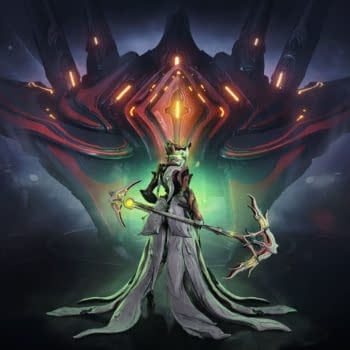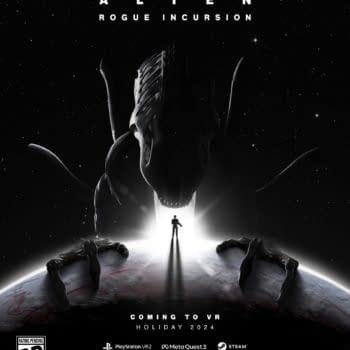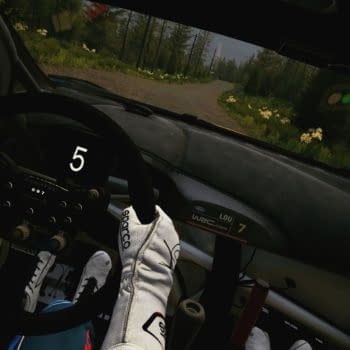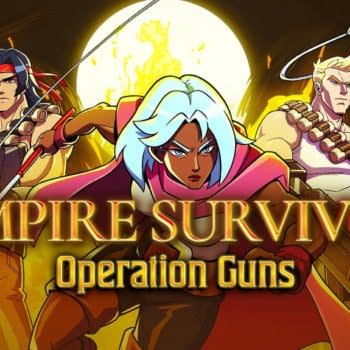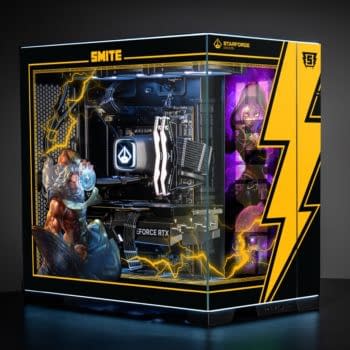Gang Beasts is a multiplayer party game where players control gelatinous characters and take part in slaptstick fight sequences. It's a party game meant
Posted in: Games, san diego comic con, Video Games | Tagged: Alison Haislip, Dan Evans III, Gigi Edgley, Jeremy Vellon, Jimmy Diggs, Mark O'Bannon, Morgan Romine, Rebekah Ganiere, star trek
CGI Star Trek And Gaming Groups For Women At The Code Switch Diversity Panel
Hilton Collins writes for Bleeding Cool…
Representation for women and people of color behind the scenes in entertainment took center stage Thursday morning during the Code Switch: Diversity Behind the Scenes panel at San Diego Comic-Con.
Host Jeremy Vellon led a group of seven speakers comprising a who's who of genre veterans. Writer Jimmy Diggs (Star Trek: Deep Space Nine, Voyager), actress Gigi Edgley (Farscape's Chiana), Rebekah Ganiere (author, Dead Awakenings), Dan Evans III (VP of Creative Affairs, DC), Alison Haislip (actor, host, Attack of the Show), Mark O'Bannon (author, The Dream Crystal), and Morgan Romine (Director of Initiatives, Anykey.org), shared their experiences in career fields where most of them have been minorities.
Panelists spent the bulk of the session time discussing their experiences and backgrounds. The conversation was mainly serious and insightful but included some jocular highlights.
"I never discriminate for race, creed, or color because there's so many real reasons to hate people," O'Bannon said. His comment elicited a strong bout of laughter from the audience.
Another moment of levity came when Diggs spoke of his career trajectory.
He supported himself financially in San Diego by being a Star Trek screenwriter for 20 years, but he recently moved to Los Angeles and completed post-production school. He said he's a producer / writer / editor, otherwise known as a predator. Audience members took the "predator" comment as a joke, but that's a real industry term for video and film professionals. Diggs clarified his role more seriously.
"Some industry people may call it a showrunner, but the idea is to be able to take any concept from pre-production to post-production," he said.
Diggs wants to use his new skills to advance cinematic narratives that include more people of color.
One of his projects is a CGI-animated Star Trek TV series called Star Trek Beyond the Stars. Many actors are already attached to star, including Edgley, who's playing a character named Commander De LaCour. Star Trek Beyond the Stars will include an animalistic race of villains called the Rakshasa, based on deities from Hindu mythology. Diggs's second project is a historical drama about the 26th Egyptian dynasty. It involves pharaohs who united the area under one rule back when it was called Kemet instead of Egypt.
Evans is also involved with the advancement of underrepresented groups on television. He oversees DC TV, the popular programming slate that includes Arrow,Gotham, Supergirl, The Flash, Lucifer, and the upcoming Black Lightning.
Most of these shows air on the CW, a network that caters mostly to a 20-to-early-30-something demographic. Evans said that he and his team sneak in diversity stealthily on their shows. The Flash, for example, is about Barry Allen, a white guy who was raised in a black family, and Supergirl and iZombie have female leads.
"I don't even like to use the word diversity," Evans said. "It's about normalization, about making sure that everybody feels like they're watching the real world. They see themselves. They see the people they know. They see the people they don't know. It's still a good and valid adventure."
Evans has worked in TV for 30 years. There aren't a lot of black people at the level he's at in entertainment right now. He's cognizant of representation in media.
"Real true representation of women and people of color and LGBT in our shows, so that they're all real people," he said.
The conversation shifted to gaming at many points, and several female panelists spoke of their experiences in that arena.
Romine's group AnyKey is an advocacy group that supports diversity and inclusion in the gaming industry. Current research projects focus on women in esports. AnyKey founded an all-women's pro-gaming with Ubisoft called Frag Dolls, and they play competitively in games like Tom Clancy shooters. Teams like the pro-gaming group bring women together who were previously isolated in their hobbies.
"We had these women. We knew they existed, but they were somewhat isolated," she said. "They rarely knew about one another. By seeking them out and bringing them together, we actually uncovered this community of women who loved playing these games."
Romine's work highlights the fact that not all video game players are 18 to 34 year old males, the demographic that marketers usually focus on. The idea that all gamers are men leads to many female gamers feeling like they're invisible.
Haislip and Ganiere, gamers themselves, could relate.
Haislip worked as a bartender before she joined Attack of the Show. She got the hosting gig after she spoke with a man who worked in development on G4, the network Attack of the Show aired on. They struck up a conversation, and she told that she was a nerd who played video games. He was surprised that a woman could be so experienced with gaming.
"I told him I'd played video games since I was five," Haislip said. "He was like, 'But you're a girl.' It was weird."
He was impressed with her background, which led to her getting the Attack of the Show gig. Haislip started coming to cons, and female attendees told her they loved that a woman was onscreen talking about things they loved doing, which was refreshing. She was stunned at first because she never thought of herself as a girl gamer, just a gamer period.
"A lot of people identify as a girl gamer, and I've never said that about myself. I've always been like, 'I'm a gamer,'" Haislip said. However, today she thinks the "girl gamer" label is important, a reversal of position.
Ganiere started playing Warcraft back when it first came out in the 1990s, and she usually plays a female character. Yet many people automatically assume that she's a man playing as a woman until she lets them know who she really is. She plays other games as well, and she's been doing it so long that it's strange for her to think of herself as abnormal in the culture.
"I realized I was a diversity factor about two years ago when I was on a panel at Salt Lake Comic-Con," Ganiere said. "I was the only female on the DMing panel for [Dungeons and Dragons]."
She was also initially surprised that she's a diversity factor in entertainment for being a white woman over 40 because she's a seasoned writer. Ganiere's getting ready to release sci-fi books, whose titles she didn't name, and she's in pre-production with two movies and a TV show.
But Ganiere has realized that she was an anomaly in many ways. Growing up, most of her friends were boys because of her hobbies. Now that she's grown, she's happy that she can come to Comic-Con and be among the greater nerd community of all kinds of people who love the things she does.
Edgley thanked the fans in audience for supporting people like her and the other panelists throughout their careers.
"This is our group. This is our community. I am so grateful, as I'm sure we all are," she said. "We would not exist if it wasn't for you guys. You've allowed us to live our dreams and pursue our passions."
Stay up-to-date and support the site by following Bleeding Cool on Google News today!








![[REVIEW] "Gang Beasts" is Zany Party Madness](https://mlpnk72yciwc.i.optimole.com/cqhiHLc.IIZS~2ef73/w:350/h:350/q:75/rt:fill/g:ce/https://bleedingcool.com/wp-content/uploads/2019/09/gang-beasts-7-350x350.jpg)
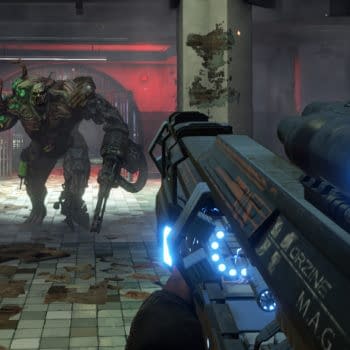
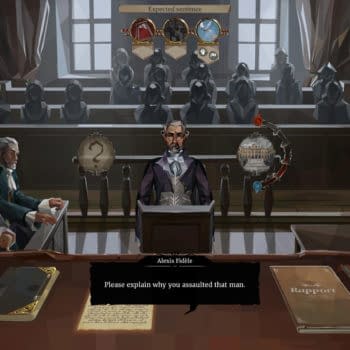


![[REVIEW] "Divinity: Original Sin II" Definitive Edition is Almost Perfect](https://mlpnk72yciwc.i.optimole.com/cqhiHLc.IIZS~2ef73/w:350/h:350/q:75/rt:fill/g:ce/https://bleedingcool.com/wp-content/uploads/2018/08/Divinity-Original-Sin-2-Definitive-Edition-art-350x350.jpg)
